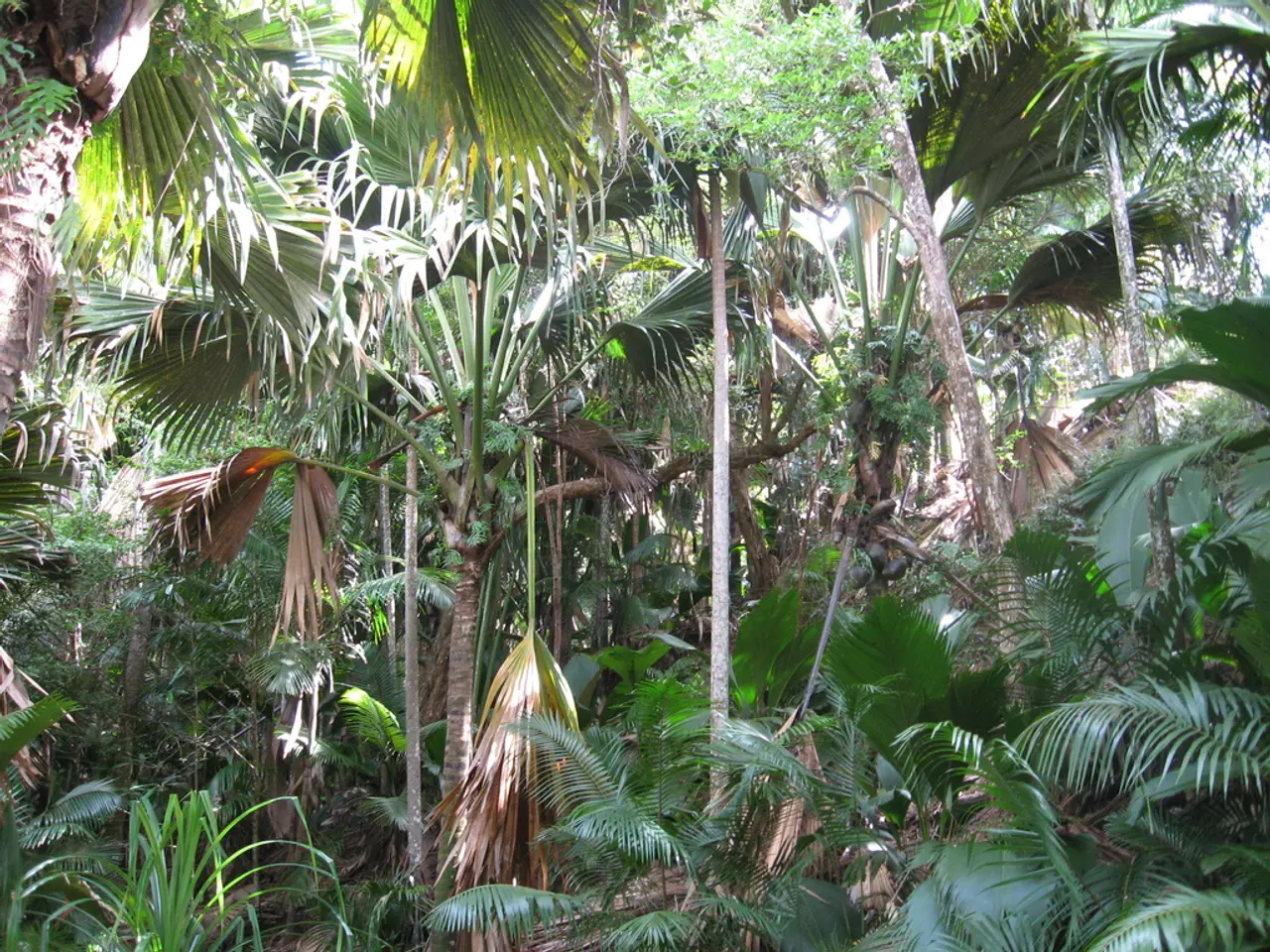Sweden and Finland take measures to protect their bioenergy Output
In a recent development, the national governments of Finland and Sweden are contemplating abandoning their LULUCF objectives under EU climate legislation, citing unreasonable restrictions on their forestry sectors. This move, if implemented, would necessitate the forest industries in these countries to lessen logging pressure.
The EU's LULUCF law, which sets nationally binding net carbon removal targets for the period 2026-2030, mandates that every EU country ensure their land and forests remain a net sink of carbon dioxide. However, a report has flagged investment gaps and decreases in carbon sinks as threats to EU climate progress, and the current regulations have not been specifically tailored to safeguard bigger and healthier forests as carbon sinks.
The Nordic countries, particularly Finland, have been relying on forest biomass to meet renewable energy goals. Under the EU rules, forest biomass may count as renewable and sustainable if the member state demonstrates that overall forest harvesting is sustainable. However, increased logging has been pinpointed as a primary cause for forests transitioning from a sink to a source of carbon dioxide.
Kelsey Perlman, European Forest Campaigner at the green NGO Fern, has criticized the idea of reducing the logging pressure in Finland and Sweden, asserting that logging in Finland is so intense that the forestry sector has been emitting more greenhouse gases than the remaining forests can capture for at least the past five years.
Several European forestry organizations have penned an open letter to the European Commission requesting flexibility in EU forest regulations to better account for regional differences and support sustainable forest management. The leaders of Finland and Sweden have also appealed to Commission President Ursula von der Leyen to allow flexibilities under the EU’s forest rules, claiming that the current regulations are a 'major problem' leading to 'unreasonable and unjustified' restrictions.
Meanwhile, the cork forests in Portugal serve as significant carbon sinks, but they face threats from climate change. Details about their role as carbon sinks and any potential impacts of the EU's forest regulations on these forests were not provided in the report.
Biofuels can offer emission reductions compared to fossil fuels, but the overall impact hinges on factors such as feedstock production, processing methods, and policy decisions. The article does not provide any new insights into how to protect carbon sinks in general.
The tree plantations in Sweden, which have largely replaced native forests, are fragile monocultures and are vulnerable to bark beetles. The removal of LULUCF objectives could potentially shift the focus towards more sustainable forestry practices in these countries.
This debate surrounding the EU's forest regulations and the potential impacts on carbon sinks and sustainable forestry practices is a multifaceted issue that is likely to remain a topic of discussion in the coming months.
Read also:
- Amidst India's escalating climate crisis, transgender individuals continue to persevere
- Contentious Discussion Surrounding the Movie Release of "Planet of the Humans"
- Germany's three-month tenure under Merz's administration feels significantly extended
- Norway set to allocate proceeds from sales of tickets for a soccer match against Israel to Médecins Sans Frontières (MSF)








